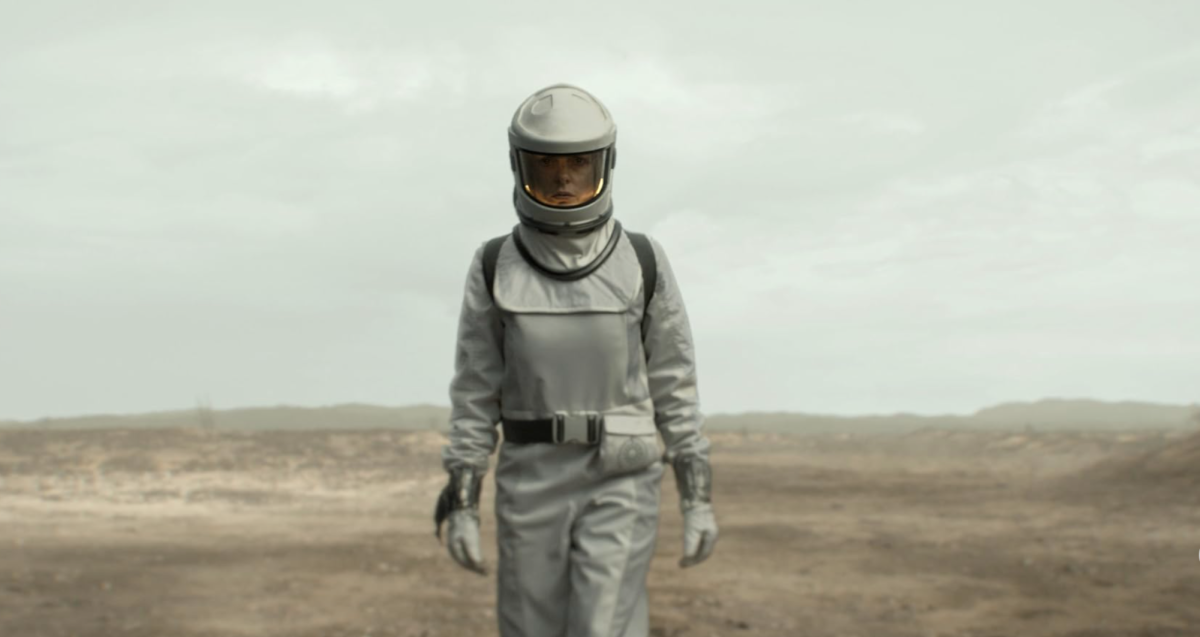“Silo” is one of the best shows the science fiction genre currently has to offer with its incredibly immersive and addictive atmosphere. Slow and steady, its first season built a compelling mystery that ranged throughout the singular space of a massive underground silo. Expanding beyond the initial environment, the second season of “Silo” once again forms an intriguing mystery interwoven with a larger story of the strength of human connection in the face of the unknown.
Adapted from the novel “Wool” by Hugh Howey, the second season of “Silo” is a direct continuation of the first season’s finale, in which Juliette (Rebecca Ferguson) manages to make it over the hill and beyond the eyes of the people of her silo, a type of bunker where humanity is sequestered after an apparent disaster left the Earth’s surface uninhabitable. On the outside, Juliette discovers that her silo is not the only one to exist and manages to enter Silo 17, a dead silo whose only survivor appears to be Solo (Steve Zahn). While Juliette in Silo 17 desperately attempts to return to her home, a rebellion brews in Silo 18 as the people begin to demand answers to what is truly out there.
Though the season’s two central plotlines occur in two entirely different locations, the narrative manages to feel more or less balanced. Silo 17 is a fascinating setting with its entrance full of the skeletons of long-dead residents who had tried to leave, and Juliette spends much of her time exploring the eerie dark halls weathered with age. She completes one arduous task after another as she tries to work with Solo, a quite unreliable ally, to get back home. Yes, the pacing is quite slow at moments and plot developments are somewhat rare; however, such pacing proves to be eventually rewarding in developing the history of Silo 17 as a whole and Juliette’s and Solo’s complex relationship.
Both Ferguson’s and Zahn’s performances create a compelling central bond between Juliette and Solo. While Solo is a full-grown adult, he still has the mind of a child due to his upbringing during the rebellion. There are moments where he lashes out against Juliette in fear, but deep down, Solo has a loyal heart and a shy kindness. Zahn expertly conveys this dual nature with natural ease and care.
Ferguson’s Juliette is still the pillar of strength she was in the first season — a complete force of nature in her own right. There is a short yet incredible monologue that an impassioned Juliette delivers regarding unity in the final episode, “Into the Fire,” that perfectly showcases Ferguson’s ability to fully capture the screen. Juliette’s pure will to do what is right for the people she loves comes alive through this strong performance.
Back in Silo 18, the primary narrative focuses on a rebellion brewing in response to Juliette’s success in moving beyond what the silo’s camera can capture of the outside. Within this storyline, the conflict creates an ideological divide between those in the lower levels and those in the higher levels of the silo.
The leadership that occupies these higher floors are quite complex and dynamic characters that truly intrigue the audience. Particularly, the early scenes between Bernard Holland (Tim Robbins), the silo’s mayor, and Judge Mary Meadows (Tanya Moodie) crackle with such detail that it creates a tender yet viscous action from the colliding natures between these two characters. Robbins’ and Moodie’s acting creates a strange sort of chemistry that elevates their scenes, which serves to embed their character’s relationships in further ambiguity. Individually, both Robbins and Moodie deliver incredibly nuanced performances and it is an absolute thrill to see these manipulative figures fully come alive as they plot, scheme and calculate.
Although the people of Mechanical, who occupy the lower levels, drive the silo’s rebellion, it felt as if they were not given many chances to fully shine. Instead of a slower pace where the audience can really take in the characters and the story, the narrative of the lower levels is defined by action. When paired with more clunky, less natural dialogue, the rebellion lacks a certain intrigue compared to the season’s other plots. While there are still compelling characters and story beats within this space, it feels as if the full potential of this storyline was not given the chance to completely form.
With an incredibly talented cast of actors, a strong sense of its larger universe and numerous well-crafted narratives, “Silo” has fully taken shape in its second season. As it approaches its final two seasons, I am confident that it will continue to create something special.















